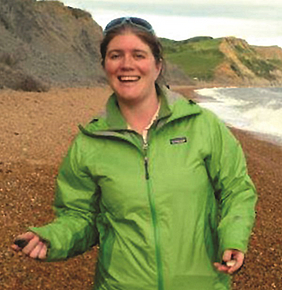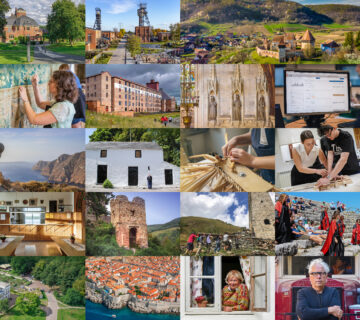This time we meet Marie Banks, IE News Coordinator
What sort of news is welcomed for the ie newsletter and webpage?
It’s a newsletter for our members, so we look forward to receiving whatever people would like to talk about – it’s a case of (almost) anything goes! It’s great to hear about the projects people have been involved with or reports from events or training that people have attended (whether IE ones or not) and we have two new sections of the newsletter: in the Thoughts section, feel free to reflect upon the ‘bigger picture’ of interpretation or share any new ideas; and in the Research section, we will be providing reviews of relevant books and research papers to keep everyone up to date.
What was the best advice you were ever given about writing?
Well, the most important thing that I try to stick to is ‘know your audience’ so you can make it appropriate for them. But one of my favourite tips was picked up from Susan Cross – an IE member so hopefully she’s reading this – to use the ‘Hey!’ test on your writing. Try reading your work aloud, or at least the first sentence or main point which is meant to capture the audience. Would it make someone run to their parents, friends or partner and say, ‘Hey! Did you know …?’ And then, of course, there’s the valuable advice to not leave the most important point until last, because the reader may not get that far…
Proofreading, copy editing and interpretive texts … Are interpreters good writers?
We ought to be, but I think both skills are a bit of an art form in their own right. They work very well hand-in-hand, but interpreters with the skill to find meanings within content might know how to engage and make connections for others but it can often still be really useful to work with another artist to distil the words down into something with the rhythm and poise to tell the story well.
Where are the biggest challenges in interpreting nature?
The three that I see are: encouraging the ‘tech generation’ to engage with real life; dealing with the impacts of climate change – an evolving and sometimes controversial subject, whilst trying not to ‘preach’ to our audience; and establishing a uniform approach that crosses political attitudes and boundaries – nature and wildlife don’t adhere to the same physical boundaries as us so large habitats or bird migration routes can be a good way to engage people across a wide area, from multiple countries, but it can also have its difficulties.
Tell us about zebraproof, mountain bikes and hot air balloons.
Zebraproof.uk is the company I set up after 20 years of full-time employment. I’m loving putting my writing, editing and proofreading skills to the test with ‘black on white’ content and also continuing to develop colourful interpretation and childproof (or zebraproof!) interactive exhibits with my husband’s company, W19 Design. I love being outdoors and when not in the office, I can usually be found walking, mountain biking or flying above the countryside in my hot air balloon. It gives me a good perspective on the world and our place in it.




